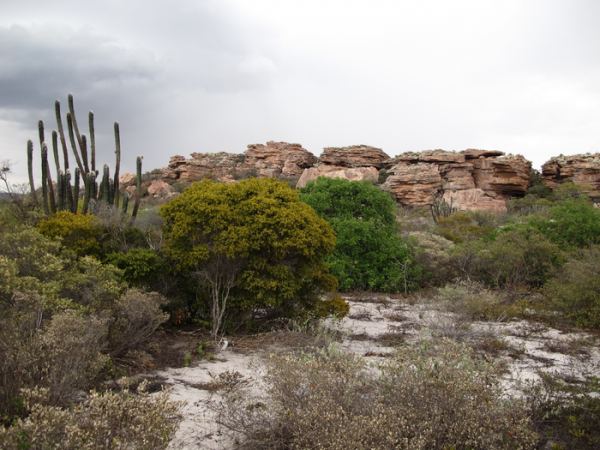The system uses satellites to spot areas of concern – including those at risk of "tipping points" – and can also measure the success of conservation and restoration efforts.
Resilient ecosystems have a greater ability to recover shocks such as droughts, fires and floods – so a decline in resilience makes an ecosystem more vulnerable.
The research team, led by the Global Systems Institute (GSI) at the University if Exeter, have developed a prototype sensing system.
Its initial results suggest global average resilience has declined in the last 20 years.
"By identifying regions that are losing resilience, this system shows us which places we should be most concerned about," said GSI Director Professor Tim Lenton.
"It can raise a red flag, guiding action to restore resilience.
"This is especially important in places that might have a tipping point (a threshold that sparks irreversible change), such as the Amazon rainforest."
Read more at: University of Exeter
Vegetation in the Caatinga (Morro do Chapeu, Bahia State, Brazil) (Toby Pennington)


